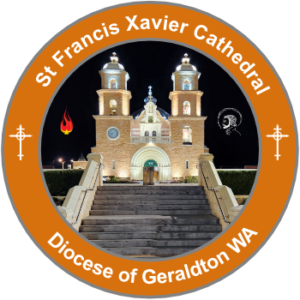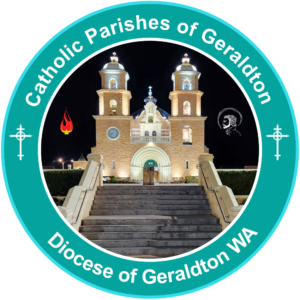Reconciliation

It is all about the love and mercy of God
The Sacrament of Reconciliation is a part of Catholic faith and life. The core of this Sacrament is God’s love for us and his desire to heal us and set us free when we turn to him and seek his mercy. Reconciliation emphasises the essence of the sacrament: the reassurance of God’s reconciling and forgiving love for the person confessing their sins.
For the next First Reconciliation,
After School lessons commence in February 2026.
Please click here to download the
Please download
It is sometimes called the sacrament of Penance, because this is the way a person can admit their sins and receive God’s forgiveness through the ministry of the priest.
Sin is before all else an offence against God, a rupture of communion with him. At the same time, it damages communion with the Church. For this reason conversion entails both God’s forgiveness and reconciliation with the Church, which are expressed and accomplished liturgically by the Sacrament of Penance and Reconciliation (ccc 1140).
In this Sacrament we admit that we often fail to love God, each other and ourselves. We call these failures “sin” and sin can become a burden in our lives if we don’t do something about it.
The Catholic Church, in its wisdom, offers us the sacrament of Reconciliation as a more perfect and powerful way to unburden ourselves. Reconciliation allows us to make space in our lives to receive God’s gift of grace and tender mercy, so we can come to know we are truly God’s beloved.
Other Names of the Sacrament of Reconciliation
It is often called Confession.
The Confession (or disclosure) of sins, even from a simply human point of view, frees us and facilitates our reconciliation with others. Through such an admission man looks squarely at the sins he is guilty of, takes responsibility for them, and thereby opens himself again to God and the communion of the Church in order to make a new future possible.
When Christ’s faithful strive to confess all the sins that they can remember, they undoubtedly place all of them before the divine mercy for pardon. But those who fail to do so and knowingly withhold some, place nothing before the divine goodness for remission through the mediation of the priest, “for if the sick person is too ashamed to show his wound to the doctor, the medicine cannot heal what it does not know.” (ccc 1505).
Sacrament of Conversion
It is called the Sacrament of Conversion because it makes sacramentally present Jesus’ call to conversion, the first step in returning to the Father from whom on has strayed by sin.
Sacrament of Forgiveness
Christ instituted the sacrament of Penance for all sinful members of his Church: above all for those who, since baptism, have fallen into grave sin, and have thus lost their baptismal grace and wounded ecclesial communion. It is to them that the sacrament of Penance offers a new possibility to convert and to recover the grace of justification. (ccc 1446).
Only God forgives sin
Since he is the Son of God, Jesus says of himself “The Son of man has authority on earth to forgive sins” and exercise this divine power: “Your sins are forgiven”. Further, by virtue of his divine authority he gives this power to men to exercise in his name. (ccc 1441).
What happens at the Confession/Reconciliation?
We, as Catholics, are called to regularly examine our conscience – that is, those times where we have failed to love God, others and ourselves. We are also called to make every effort to be reconciled with anyone we hurt.
Assured of the absolute confidentiality of the sacrament, a person privately confesses their failures – sins – to a priest and asks for God’s forgiveness. The priest assures the person of Jesus’ forgiveness and absolves them of their sins. The priest might also offer some gentle advice or encouragement to help the person live a more loving life.
What is the Seal of Confession?
The seal of Confession is that the priest who hears the Confession must not, under any condition, reveal the confessed sins of the particular person.
Didn’t confess for a while..?
Don’t know what to do??
Not to worry!.
Just speak to the Priest in the confessional.
He will help you.
When does anyone commence the Sacrament of Reconciliation?
The children at the age of 7 (when they are in year 3) will prepare to receive the Sacrament. Our Catholic Schools do preparations in the school itself, followed by a day of retreat and celebrate the Sacrament. Those who are not attending a Catholic School should enrol for After School Preparation Program and attend the lessons. For more information and enrolment, please visit the After School Sacramental Program page.
When does the First Reconciliation taking place?
It is in the First term of the Academical year, the preparations and celebrations taking place in our parishes. After School lessons usually commence in the Second week of February and celebrates the First Reconciliation towards the end of March.
What are the regular Confession Times in the Parish?
Please visit the Mass Times page for more details.

